If you're a landlord looking to maximize your rental income, consider offering a parking space for tenants. Effective communication is key, and a well-crafted letter can set the right tone. In this article, we'll explore how to create a tenant parking space rental letter that clearly outlines the terms and expectations, ensuring a smooth rental process. Ready to learn the best practices for your rental agreement? Keep reading!
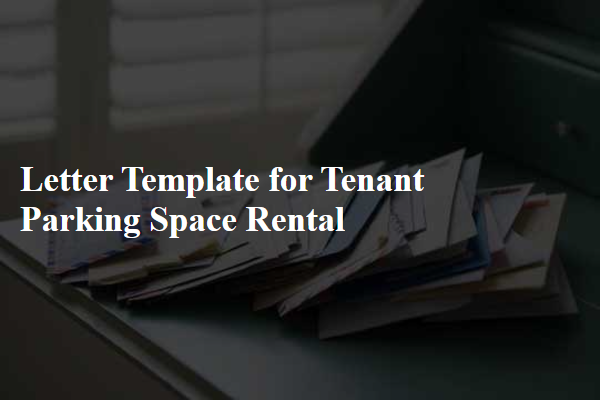
Tenant and Landlord Information
The rental agreement for a parking space involves essential details regarding the Tenant and the Landlord. The Tenant's information includes full legal name, contact number, and residential address, which is necessary for identification and correspondence. The Landlord's information should encompass the full name, contact number, and address of the property management or landlord entity, ensuring clear communication. The designated parking space information must specify the location (such as street address or lot number), size, and type of parking (covered or uncovered) to avoid any misunderstandings. Clear identification of rental term duration, monthly rental fee, and payment methods are vital components that must be outlined to maintain transparency throughout the lease agreement.
Parking Space Details
Parking space rental agreements often involve specific details that help clarify the terms of the arrangement. Key information may include location, such as a designated spot in a multi-unit residential building at 123 Maple Street, or a specific duration of the rental, like a three-month lease starting from January 1 to March 31, 2024. Rental costs usually vary, for instance, $100 per month, with payment terms that specify due dates and acceptable payment methods, such as bank transfer or check. Additional considerations might involve rules about vehicle types, stipulating that only residential vehicles (sedans, SUVs) are allowed, and restrictions on modifications, ensuring no permanent alterations to the parking area. Lastly, tenant responsibilities can include maintaining cleanliness and notifying the property manager of any issues with the parking space, fostering a respectful tenant-landlord relationship.
Rental Terms and Duration
Rental agreements for tenant parking space rental typically establish clear terms and duration requirements. Standard agreements may indicate a monthly rental fee, often ranging from $50 to $300 depending on the location, such as urban environments like New York City or San Francisco. Duration of the rental might be outlined as a monthly basis, with provisions for renewal or termination notice usually set at 30 days. Identification of the specific parking space, such as space number A12 in a multi-unit parking garage or a designated area in a residential complex, is essential for clarity. Furthermore, additional responsibilities may include maintenance rules for the space and specification of permitted vehicle types, ensuring compliance with property management regulations.
Payment Amount and Schedule
The rental agreement for the designated tenant parking space specifies a monthly payment amount of $150, due by the first of each month. Payments are to be made through an online portal (XYZ Payment System) or by mailed check to the property management office located at 123 Main Street, Springfield. Late payments, defined as those received after the 5th of the month, will incur a penalty fee of $20. This schedule is established to ensure timely access to the reserved parking area, conveniently situated near the main building entrance for tenant use.
Rules and Regulations Compliance
The parking space rental agreement outlines essential rules and regulations for tenants utilizing designated areas in residential complexes, such as those governed by the Homeowners Association (HOA) in Miami, Florida. Tenants must adhere to key provisions including designated parking hours, which typically run from 6 AM to 10 PM, ensuring no unauthorized vehicles obstruct access. Compliance with vehicle registration requirements is crucial; all vehicles must display valid permits issued by the HOA, with penalties for violations ranging from fines of $50 to towing at the owner's expense. Tenants should also remain aware of the dimensions of parking spaces, typically 9 feet wide by 18 feet long, preventing encroachment on neighboring spaces. Maintaining cleanliness and abiding by noise regulations further enhances the community environment, contributing to a harmonious living experience. Regular inspections may occur to ensure adherence, with non-compliance potentially resulting in the revocation of parking privileges.

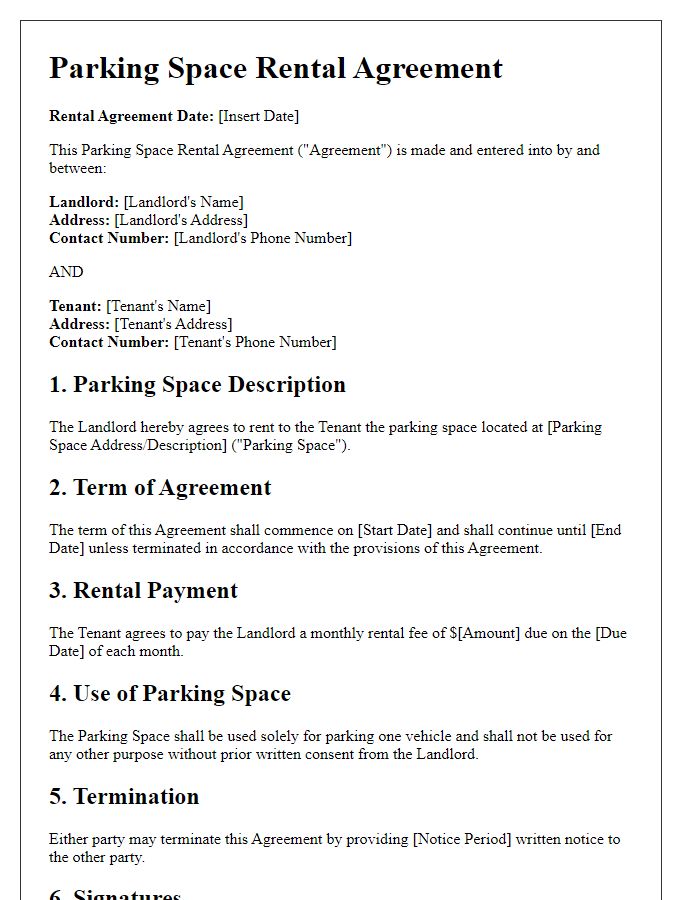
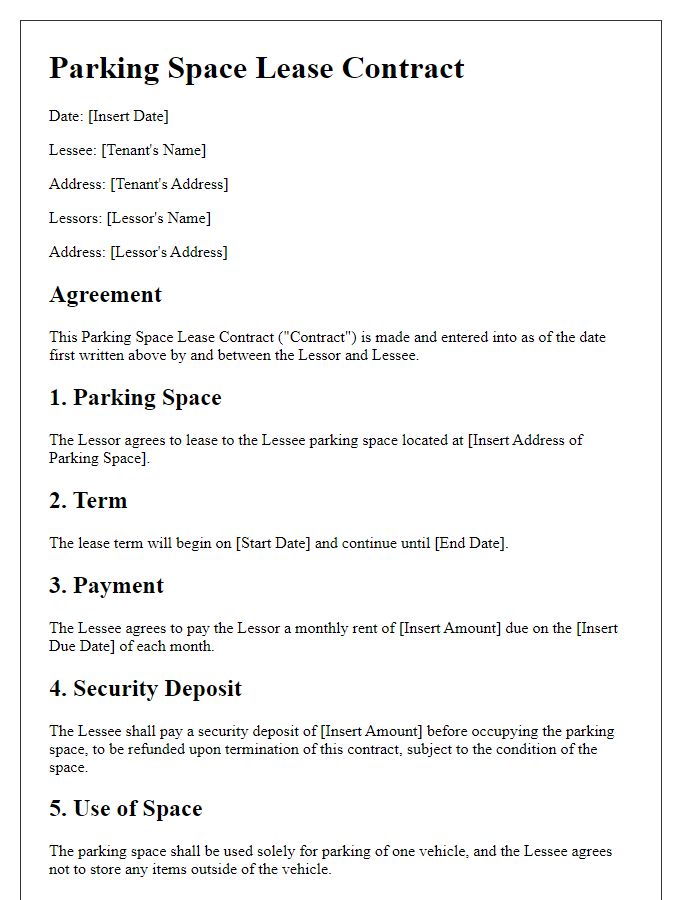
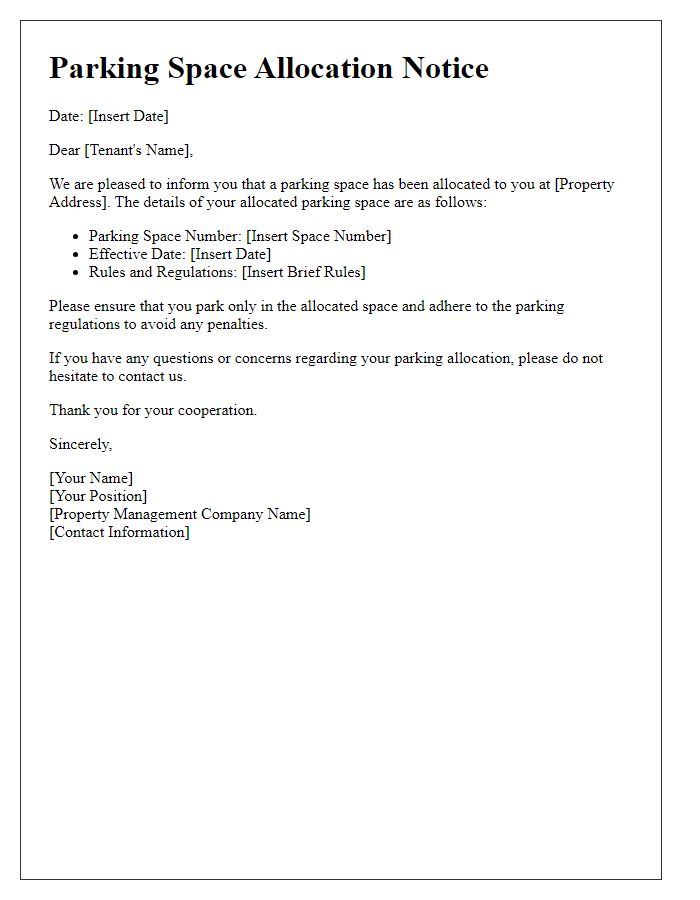
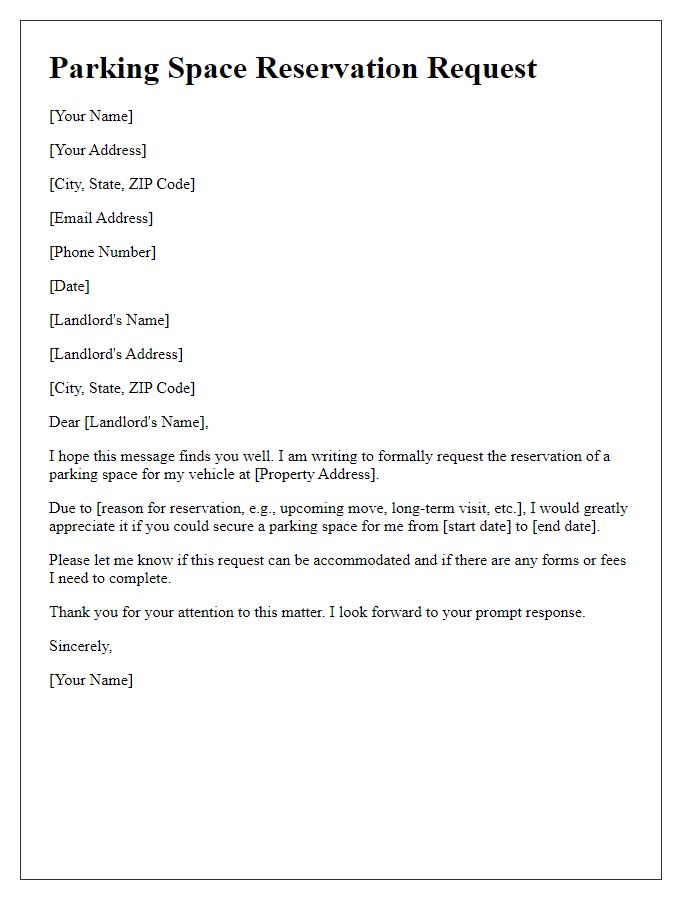
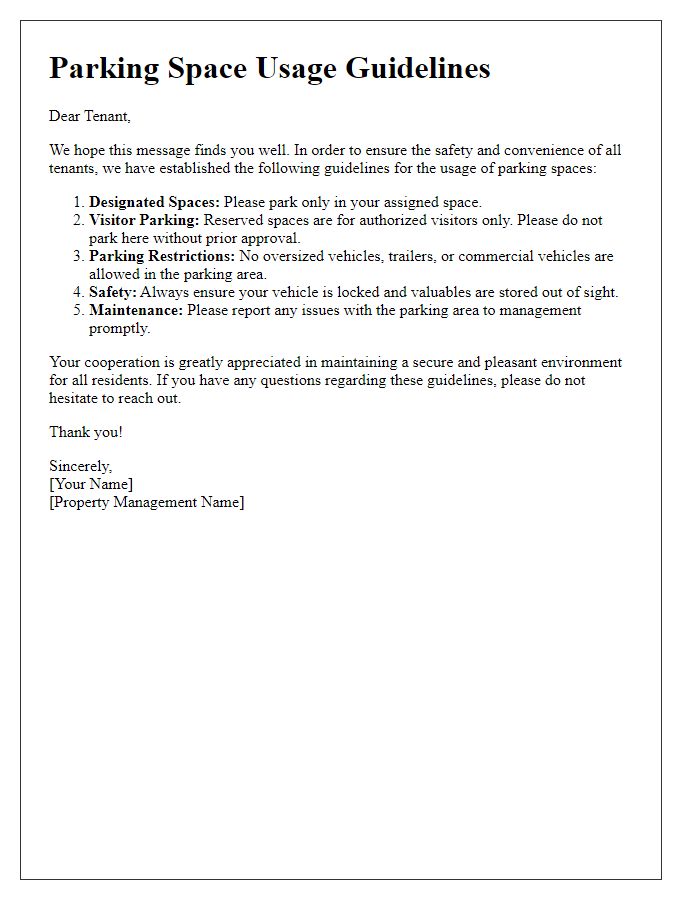
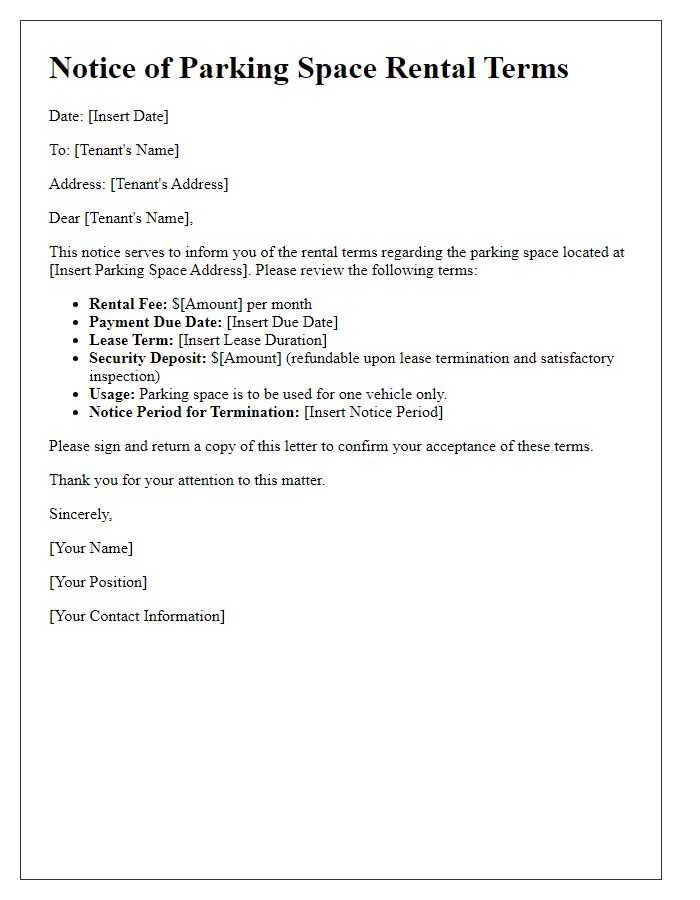
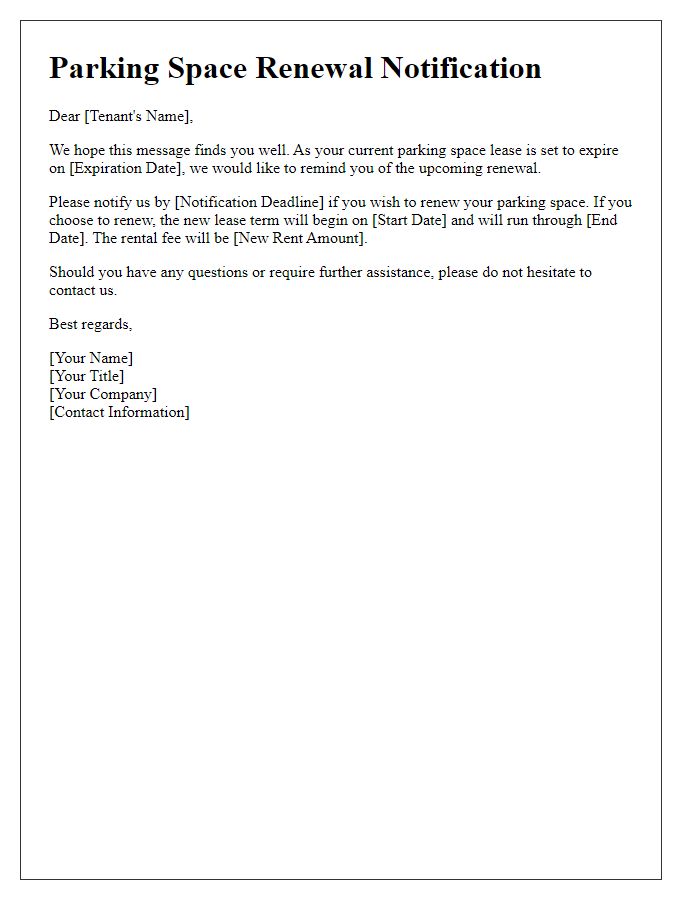
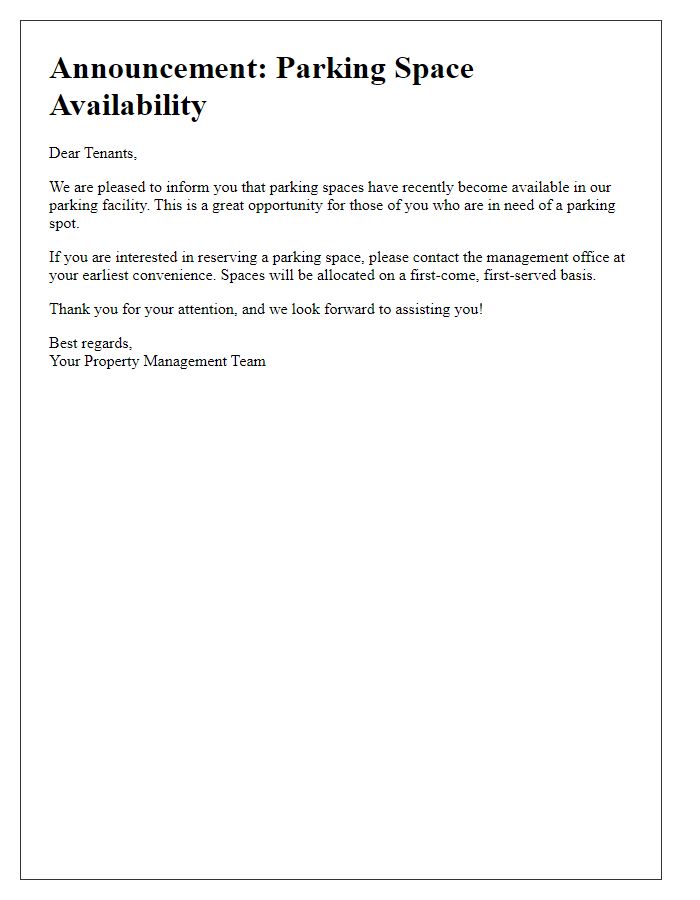
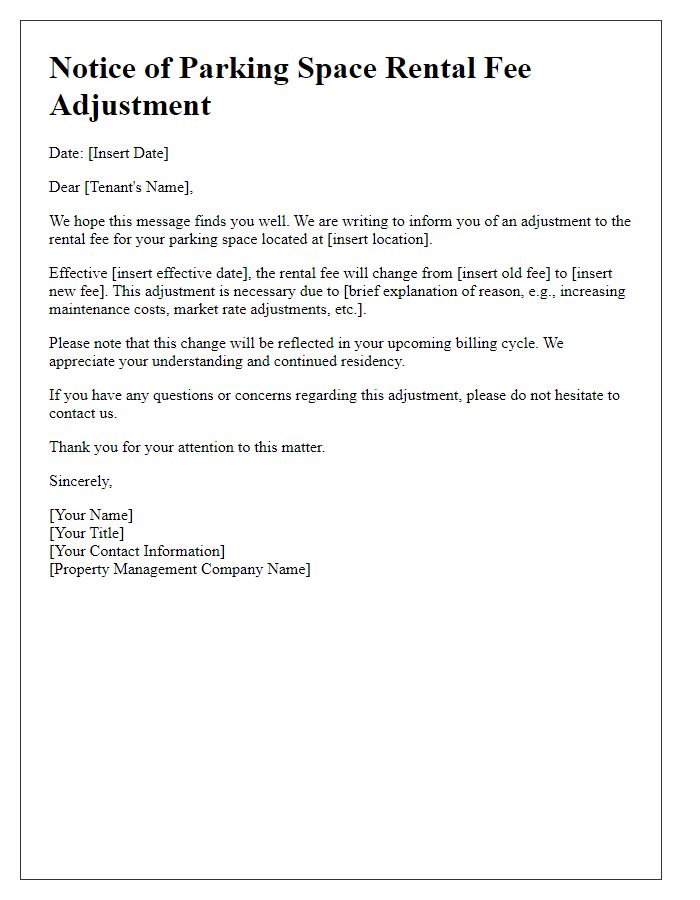
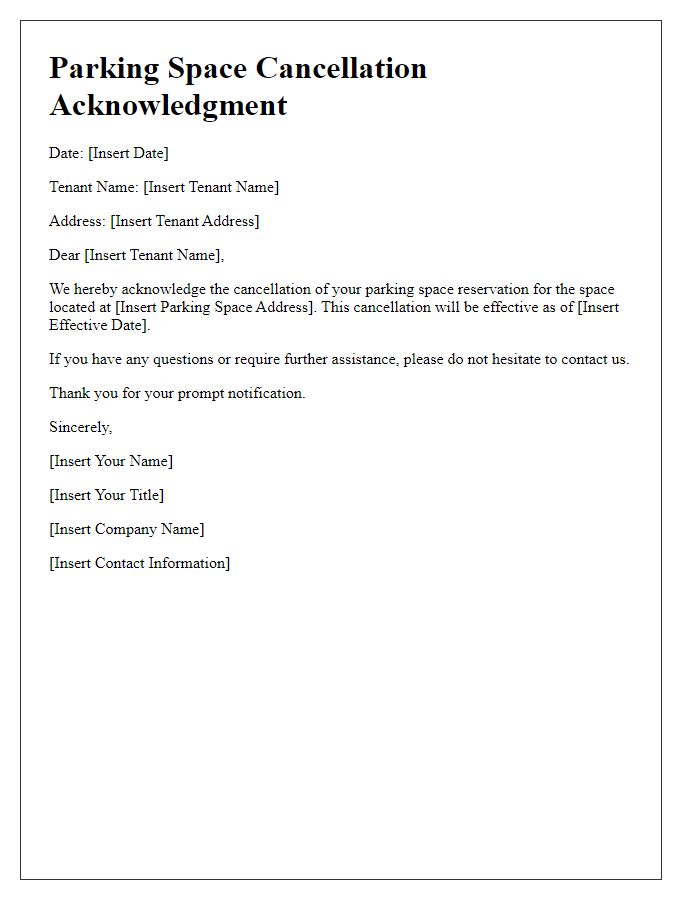

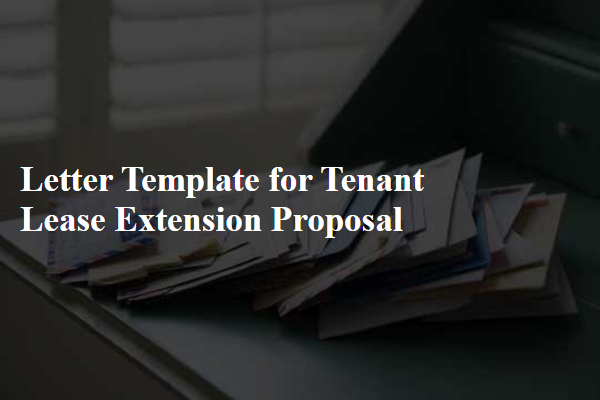
Comments